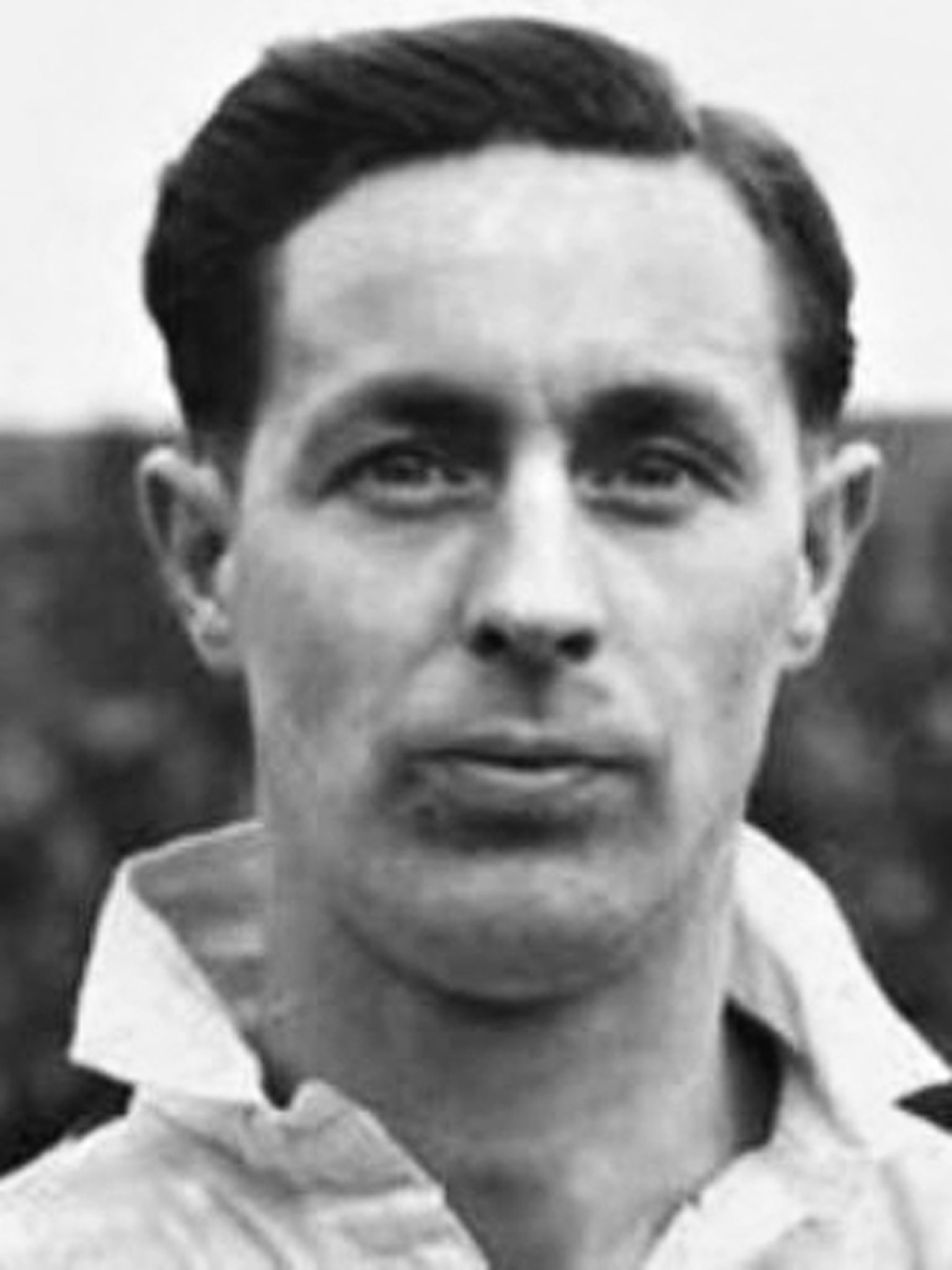George Smith: Prolific goalscorer for Manchester City

George Smith, who once scored four times for Manchester City in a derby rout of Manchester United, died just five days before the passing of his friend and team-mate Bert Trautmann. Like the celebrated German goalkeeper, the 92-year-old's story was one of triumph over adversity inflicted by the Second World War: Smith became a prolific goalscorer despite a shocking injury sustained under "friendly fire" while serving in East Africa.
Smith was a sergeant on secondment with the King's African Rifles when his unit was mistakenly strafed by the South African airforce. He was struck in the arm, leaving one hand partially paralysed and the arm so disfigured that he always wore a glove or pulled down the sleeve of his shirt to cover the damage. The City historian Gary James, who interviewed him in 2003, described how the fingers and hand were "permanently rigid in a clasping fashion" while his arm still had "two large indentations where the bullet entered and exited his flesh".
City officials doubted whether he would be able to resume his career once the fighting was over, making Smith undergo trials before renewing his contract of £2/10s/0d per week. He came through them all. When he collected a hat-trick against Tranmere Rovers in the war-time North Regional League on the opening day of the 1944-45 campaign – his first outing for City in two and a half years – it was evident that his finishing prowess had survived intact.
Smith, whose family moved from the Fylde coast to Salford when he was young, joined City from the Adelphi Lads Club in 1938, when supporters were trying to fathom how a team that won the Football League championship 12 months earlier had just been relegated. After the outbreak of war and suspension of the Football League a year later, he made his senior bow in a wartime fixture against Stockport County in December 1939, perhaps surprisingly failing to score in a 6-6 draw. There were further wartime outings for City, as well as guest appearances with Scottish side Heart of Midlothian, before he was called up for active service.
In April 1946, in one of City's last wartime matches, Smith hit all the goals, including three in seven minutes, in a 4-1 defeat of United before 62,000 spectators at Maine Road, where the Reds were staging home fixtures after the German bombing of Old Trafford. "It was nice," he told James, "for the landlord to get one over the tenants."
Smith finally made his Football League debut at Leicester City in August 1946 – a mere eight years after he signed for City. Operating in the inside-left position, he was the leading scorer with 23 goals in 38 matches as they took the Second Division title. Over the next four seasons he amassed 52 goals in 125 League games and was told that the Football Association had watched him with a view to a possible England cap – but were "nervous" about his disability.
With hindsight, it seems surprising not only that City were prepared to offload the 29-year-old Smith in 1951 (after 80 goals in 179 peacetime appearances and 45 in 90 wartime games), but also that the club who splashed £5,000 on him were Chesterfield, of the Third Division (North). He continued to strike consistently, scoring at least 15 goals in each of five consecutive seasons and representing the section against the Third (South) in a televised match at Accrington in 1955. When he retired from full-time football, in 1958, he had added 102 goals in 266 competitive matches for Chesterfield, the third highest tally in their history.
In January that year he had appeared as a guest when This Is Your Life honoured his friend Matt Busby, who had been United's manager barely a year when Smith plundered four goals against his charges. Within a month a plane carrying the Scot and his dazzling young side, the Busby Babes, had crashed at Munich with a heavy loss of life.
Playing part-time for Mossley and Hyde United, Smith worked in the sales department of a tyre-manufacturer. He spent his final five years in a care home, widowed and suffering from dementia. Trautmann, in what would prove a poignant final interview, recalled how Smith had "really welcomed me when I joined the club". He added: "George was a great goalscorer, and even to play football again after such a terrible injury made him exceptional."
George Beacher Smith, footballer: born Fleetwood, Lancashire 7 February 1921; played for Manchester City 1946-51, Chesterfield 1951-58; married Marjorie (deceased); two sons (deceased) and one daughter; died Bury, Greater Manchester 14 July 2013.
Join our commenting forum
Join thought-provoking conversations, follow other Independent readers and see their replies
Comments
Bookmark popover
Removed from bookmarks